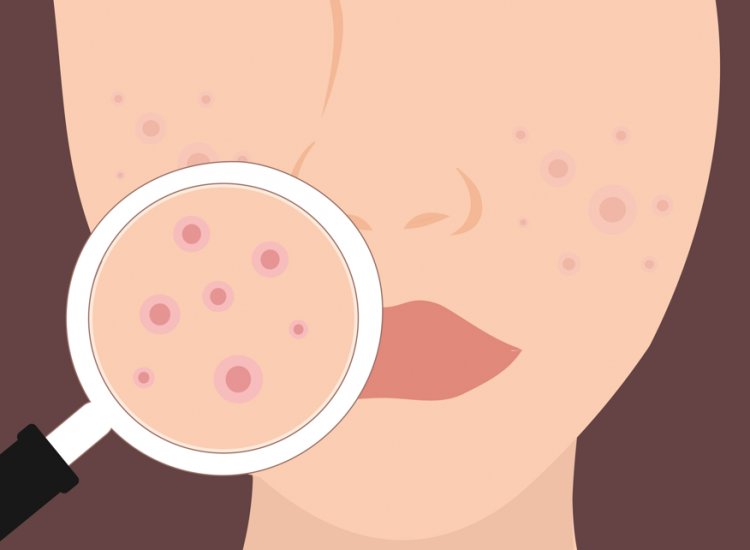Boils: The Skin's Silent Agony and How to Overcome It
Boils, also known as furuncles, are painful, pus-filled bumps that form under the skin. They are caused by bacterial infections, primarily by Staphylococcus aureus. Boils can occur anywhere on the body and can range from small, superficial pustules to larger, deeper abscesses. Understanding the causes, symptoms, types, prevention strategies, and treatment options for boils is essential for effective management and prevention of complications.

Causes of Boils
Boils are typically caused by the bacterium Staphylococcus aureus, which is commonly found on the skin and in the nasal passages. However, under certain conditions, such as cuts, abrasions, or compromised immune function, these bacteria can enter the skin and cause infection. Other factors that may contribute to the development of boils include poor hygiene, diabetes, friction or pressure on the skin, and close contact with individuals who have boils.
Symptoms of Boils
The symptoms of boils can vary depending on the severity and location of the infection but commonly include:
- Red, swollen bump on the skin
- Pain or tenderness
- Formation of a pus-filled head (pustule)
- Fever and chills (in severe cases)
- Swollen lymph nodes near the boil (in severe cases)
Types of Boils
Boils can be classified into two main types:
Furuncle: A furuncle is a single, pus-filled lesion that forms around a hair follicle or oil gland. It begins as a tender, red nodule and gradually develops into a larger, painful abscess.
Carbuncle: A carbuncle is a cluster of interconnected furuncles that form a larger, more extensive lesion. Carbuncles are typically deeper and more severe than furuncles, often causing fever, fatigue, and systemic symptoms.
Prevention of Boils
While it may not always be possible to prevent boils entirely, certain measures can help reduce the risk of infection:
- Practice good hygiene: Wash your hands regularly with soap and water, and keep your skin clean and dry to prevent the spread of bacteria.
- Avoid sharing personal items: Do not share towels, razors, or other personal items that may harbor bacteria and increase the risk of infection.
- Keep wounds clean and covered: Properly clean and cover any cuts, scrapes, or wounds to prevent bacterial entry and infection.
- Avoid tight clothing: Wear loose-fitting clothing to reduce friction and pressure on the skin, which can contribute to the formation of boils.
- Treat underlying medical conditions: Manage underlying medical conditions such as diabetes, eczema, or acne, which can increase the risk of developing boils.
Treatment of Boils
Treatment for boils depends on the severity of the infection and may include:
- Warm compresses: Apply warm, moist compresses to the boil several times a day to promote drainage and relieve pain.
- Incision and drainage: In some cases, a healthcare professional may need to make a small incision in the boil to drain the pus and relieve pressure.
- Antibiotics: If the infection is severe or widespread, your doctor may prescribe oral or topical antibiotics to help eliminate the bacteria causing the boil.
- Pain relievers: Over-the-counter pain relievers such as ibuprofen or acetaminophen can help reduce pain and inflammation associated with boils.
When to Seek Medical Attention
While most boils can be treated at home with self-care measures, you should seek medical attention if:
- The boil is large, painful, or does not improve within a few days.
- You develop a fever or other signs of systemic infection.
- The infection spreads or recurs frequently.
- You have a weakened immune system or underlying medical conditions that may complicate treatment.
Conclusion
Boils are common skin infections caused by the bacterium Staphylococcus aureus. While they can be painful and uncomfortable, most boils can be treated effectively with self-care measures and medical intervention when necessary. By practicing good hygiene, avoiding risk factors, and seeking prompt medical attention, you can reduce the risk of developing boils and promote faster healing.
Disclaimer:
The information provided in this article is for educational purposes only and should not be considered medical advice. If you have any health concerns or are experiencing symptoms, it is important to consult with a healthcare professional, such as a doctor or clinic, for proper diagnosis and treatment. Always seek the advice of your doctor or other qualified health provider with any questions you may have regarding a medical condition. Do not disregard professional medical advice or delay in seeking it because of something you have read in this article.
Hashtags:
#Boils #SkinInfection #StaphylococcusAureus #Health #Hygiene #MedicalAdvice #Healthcare
What's Your Reaction?





















